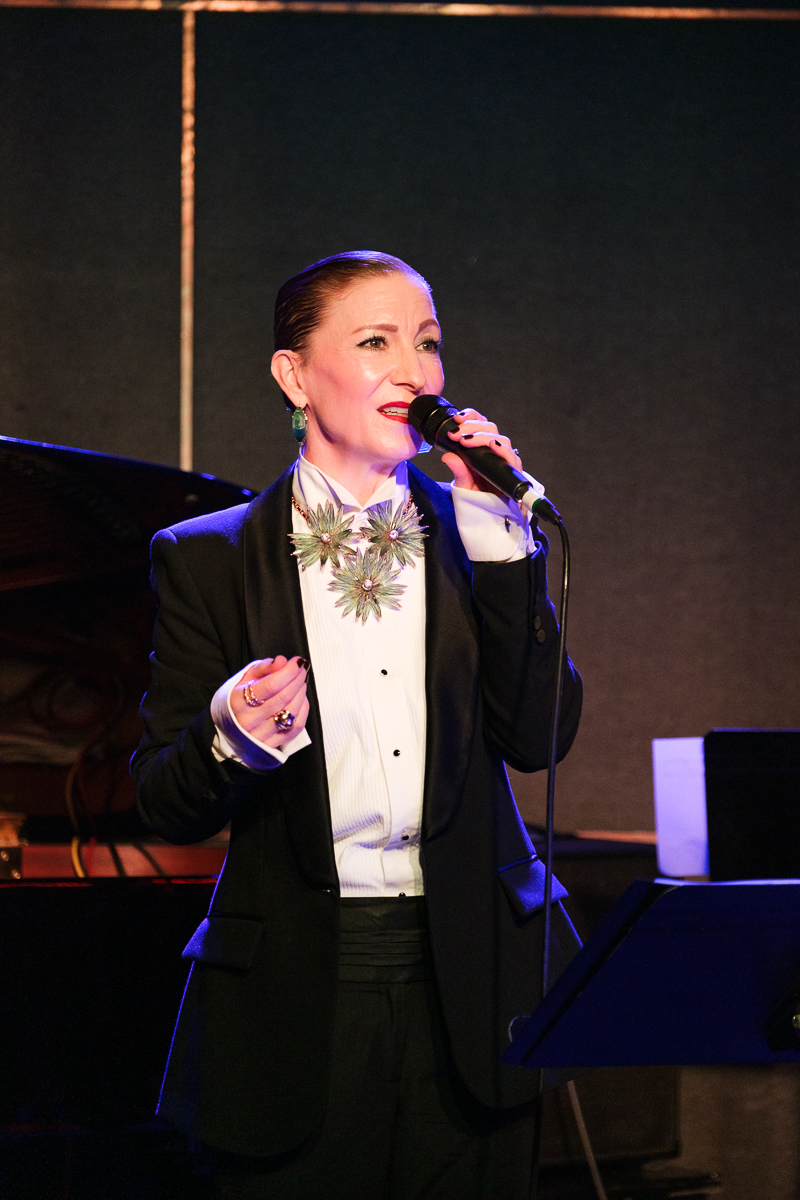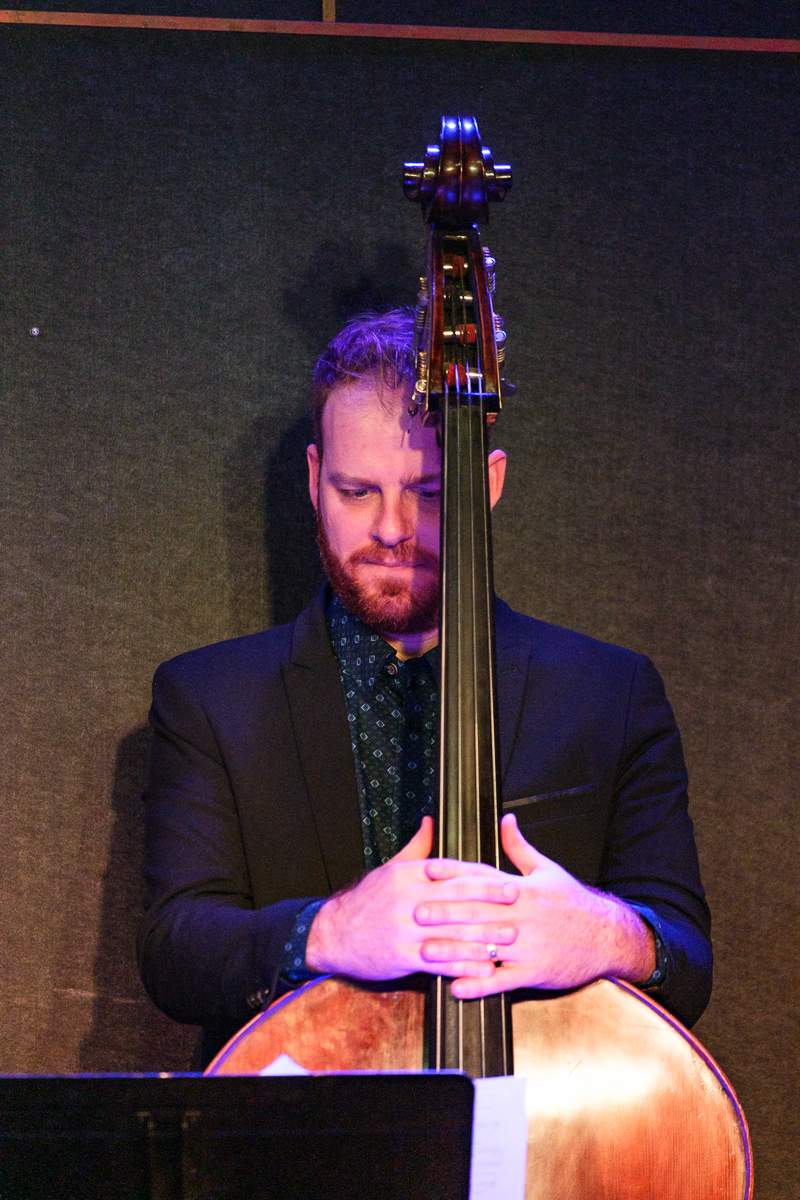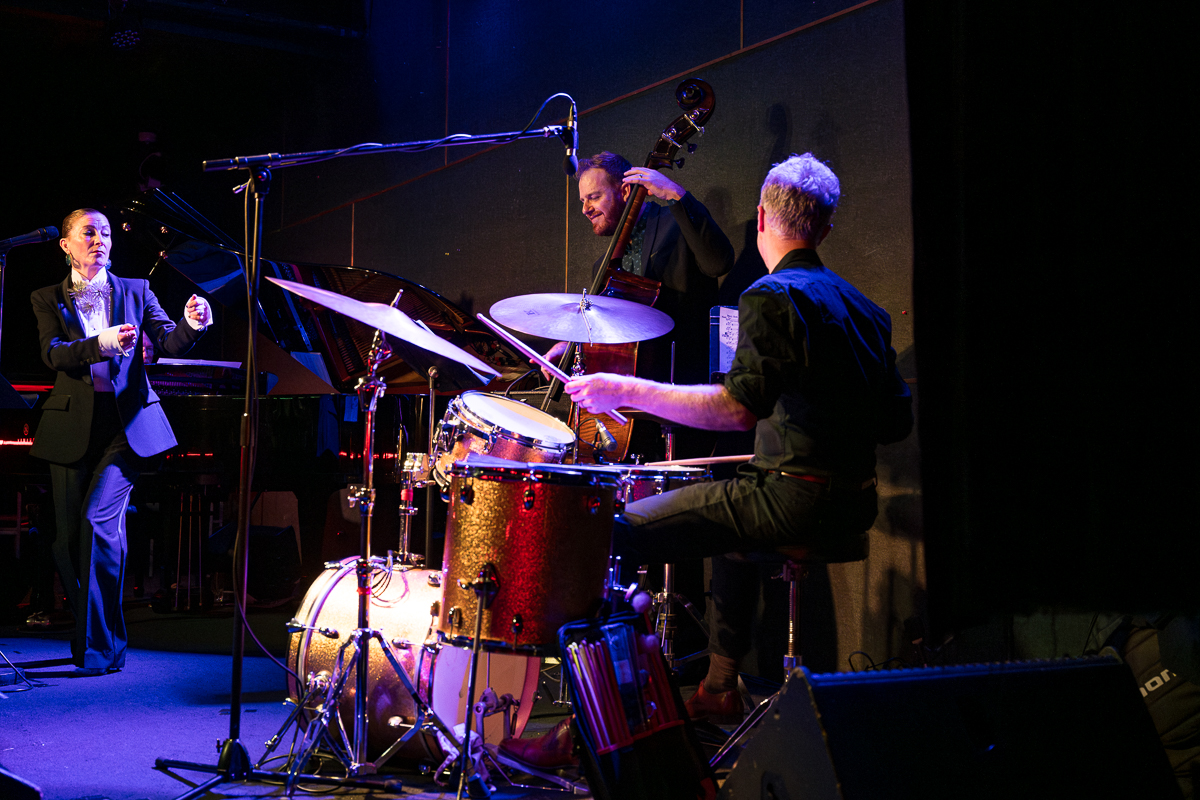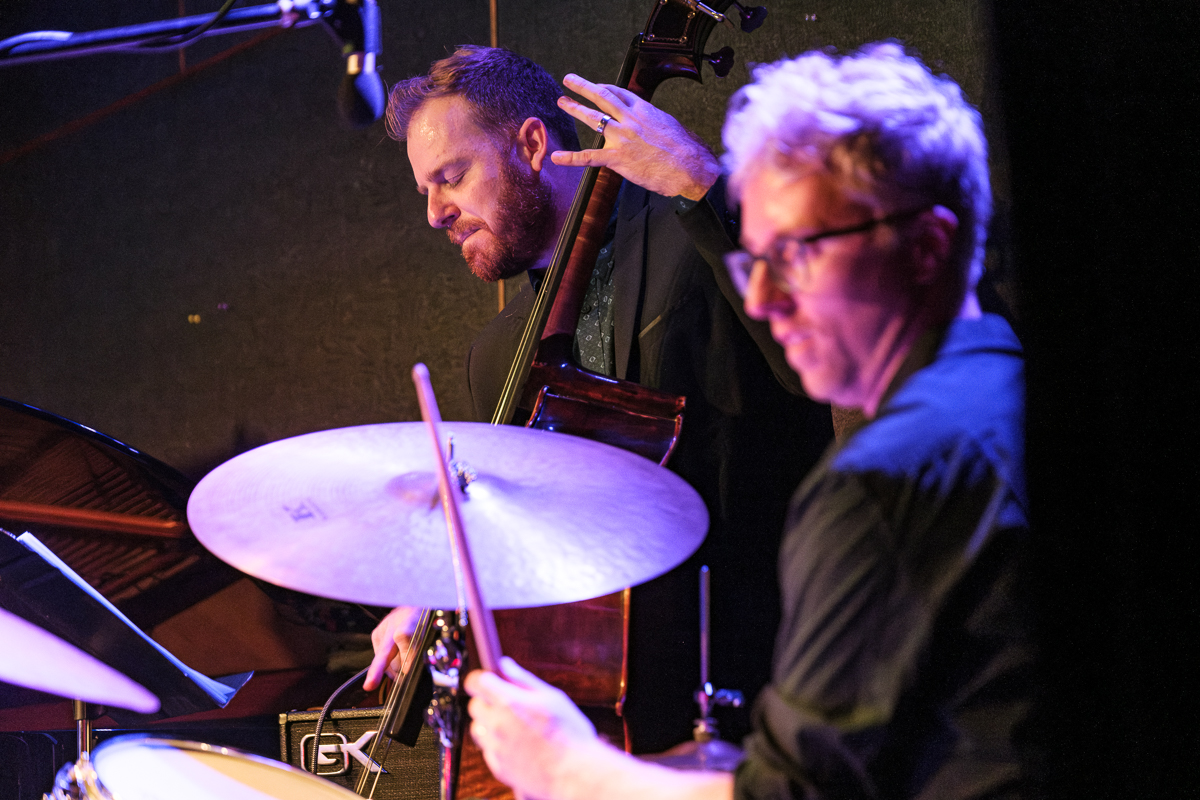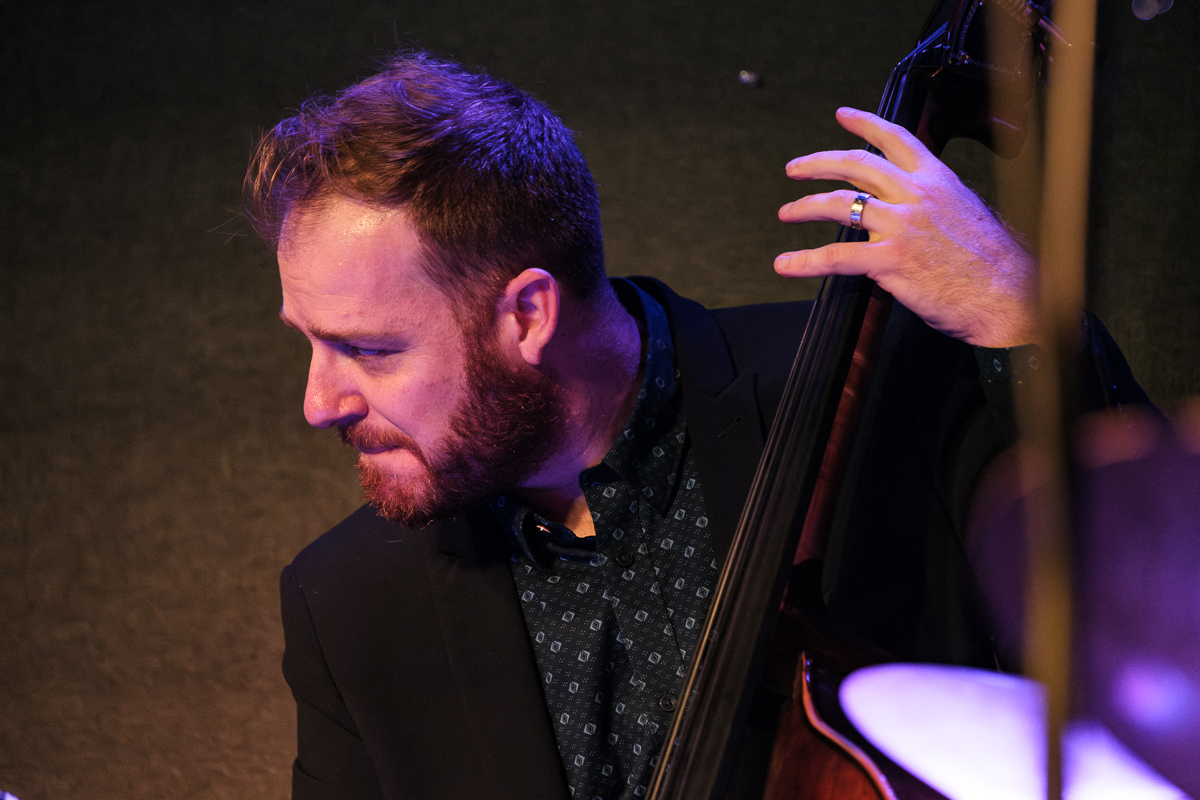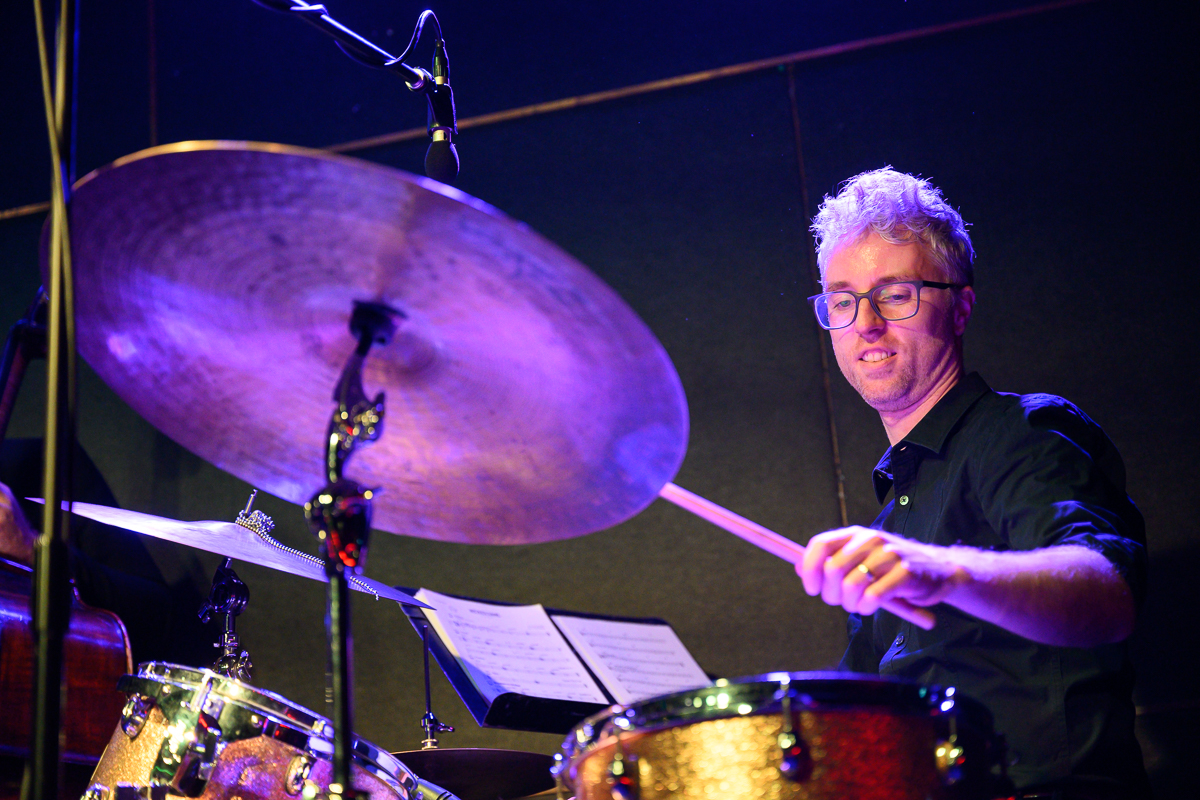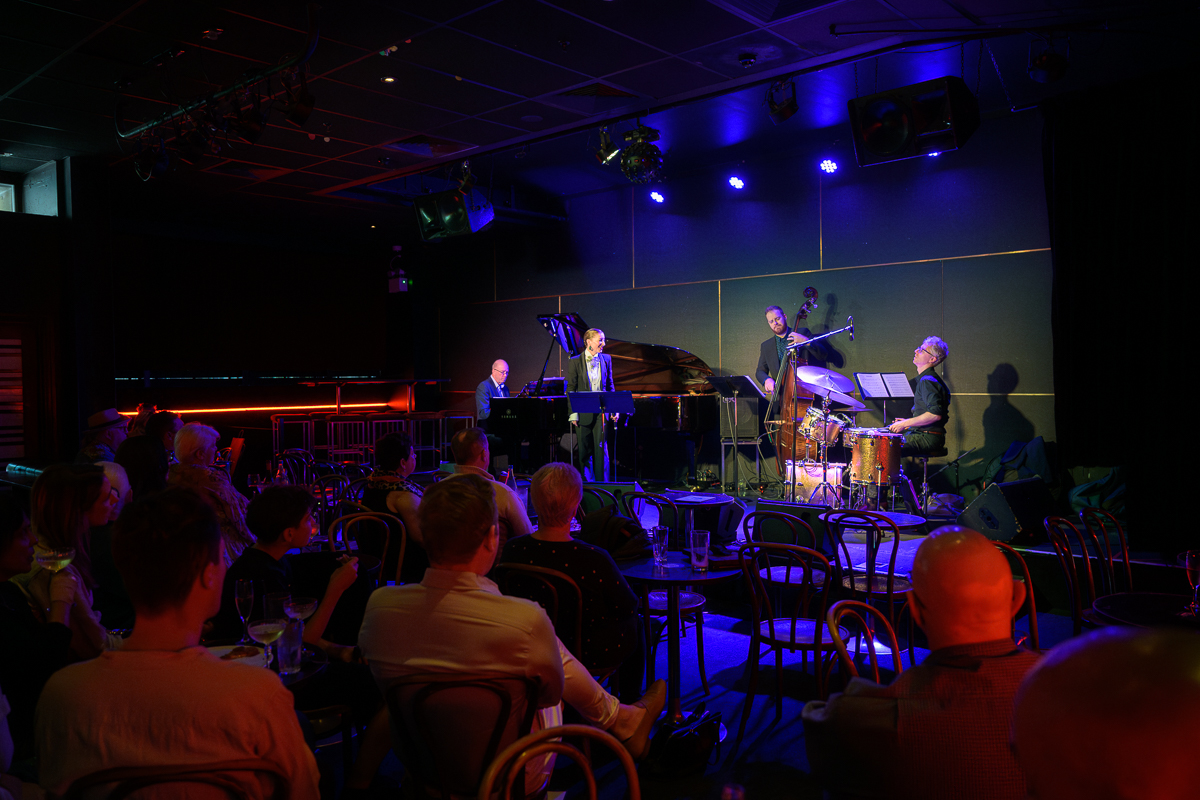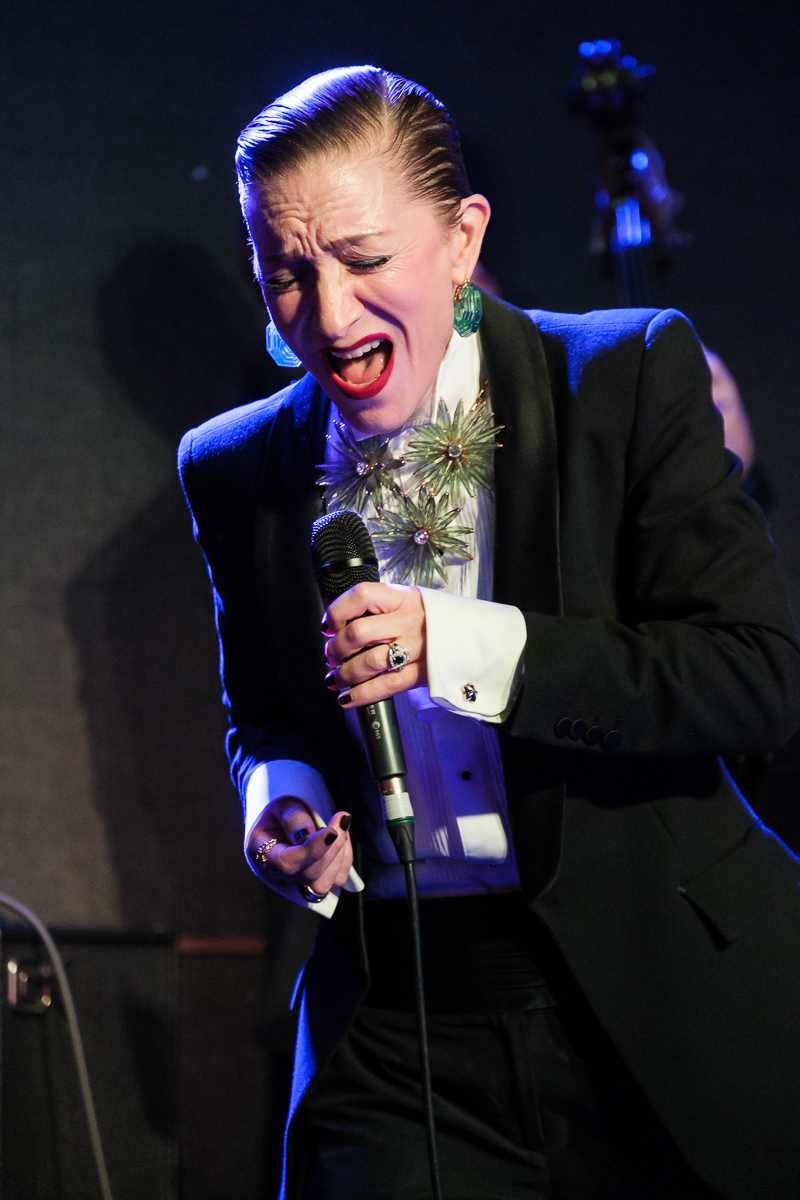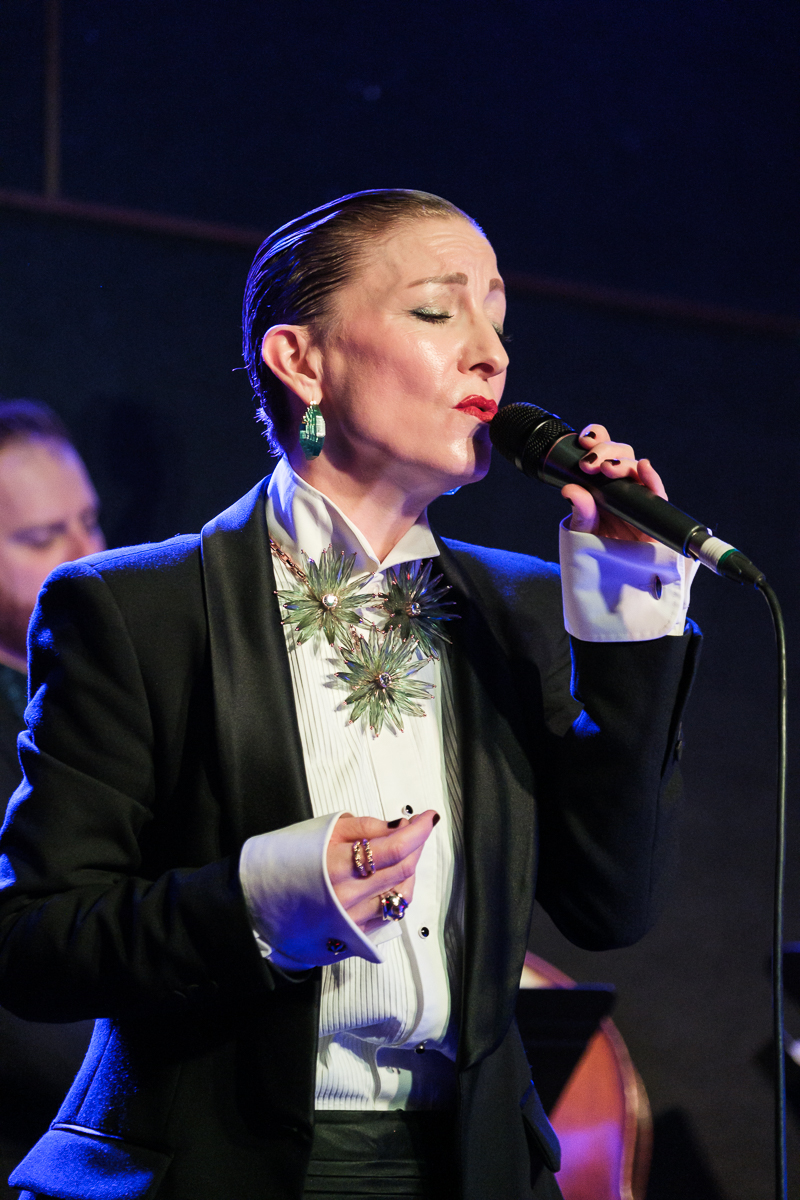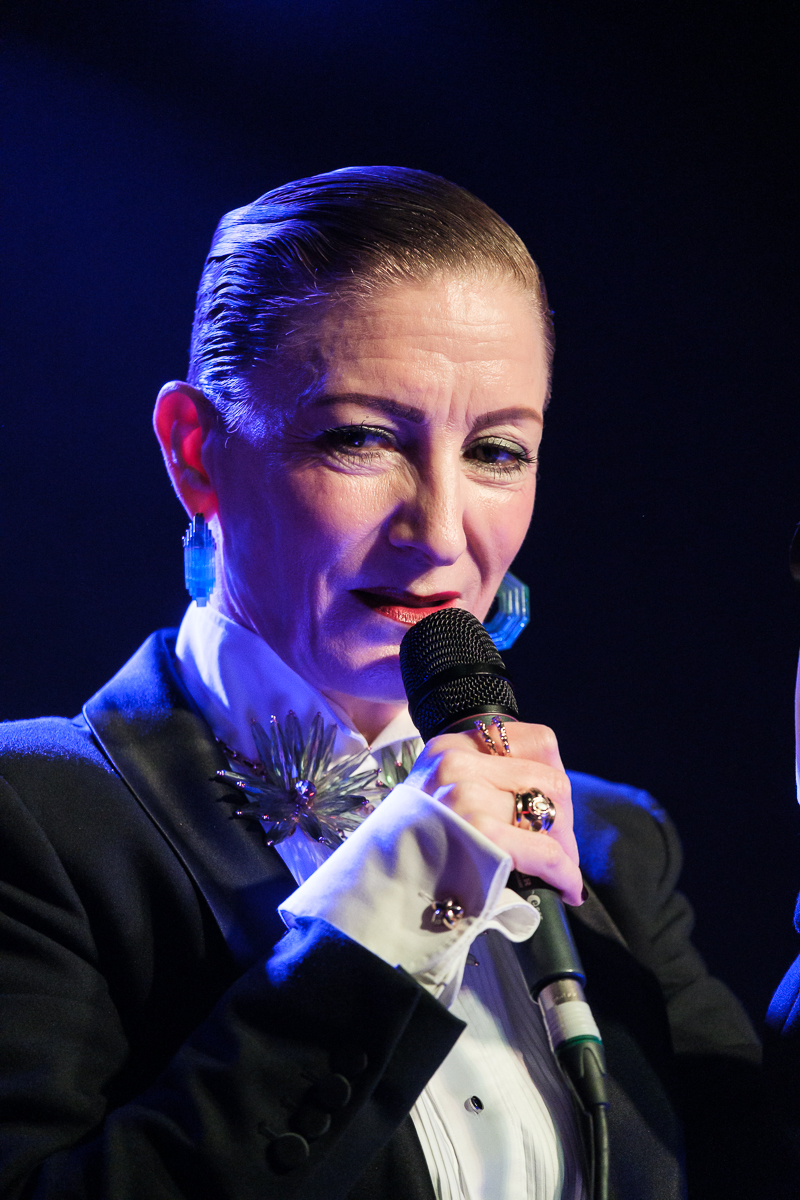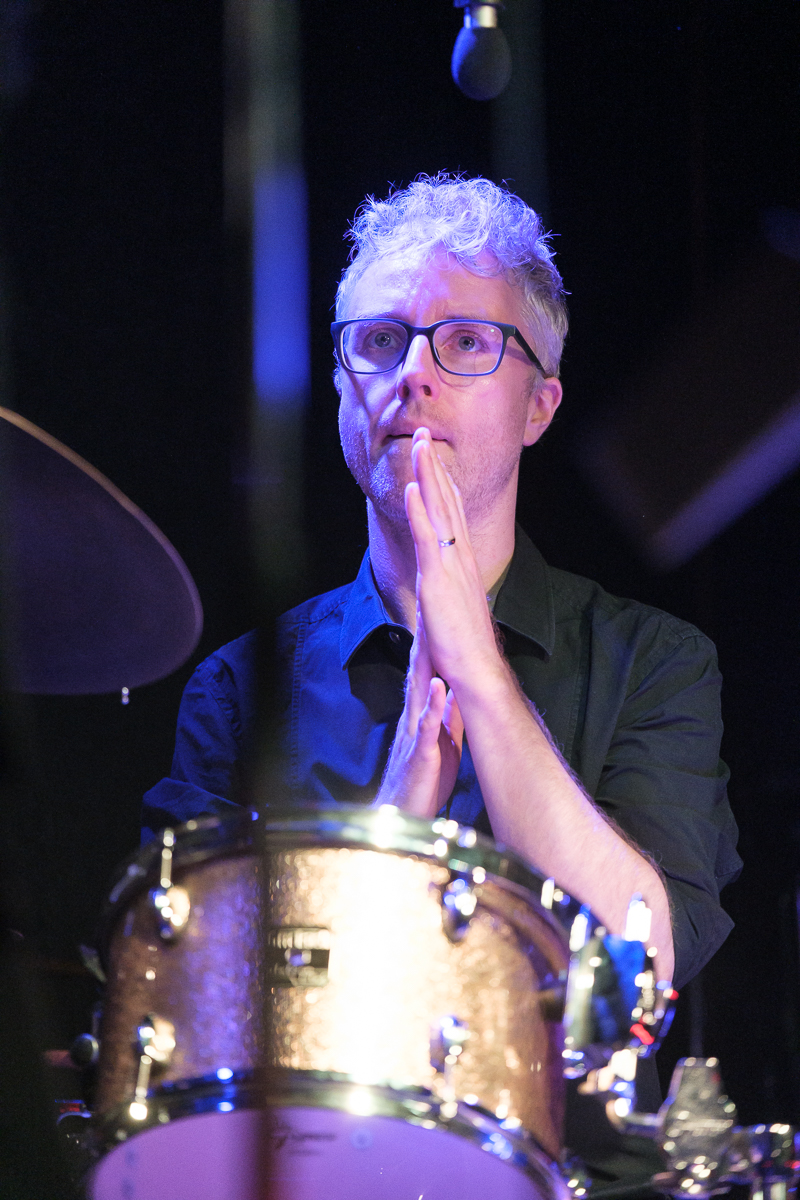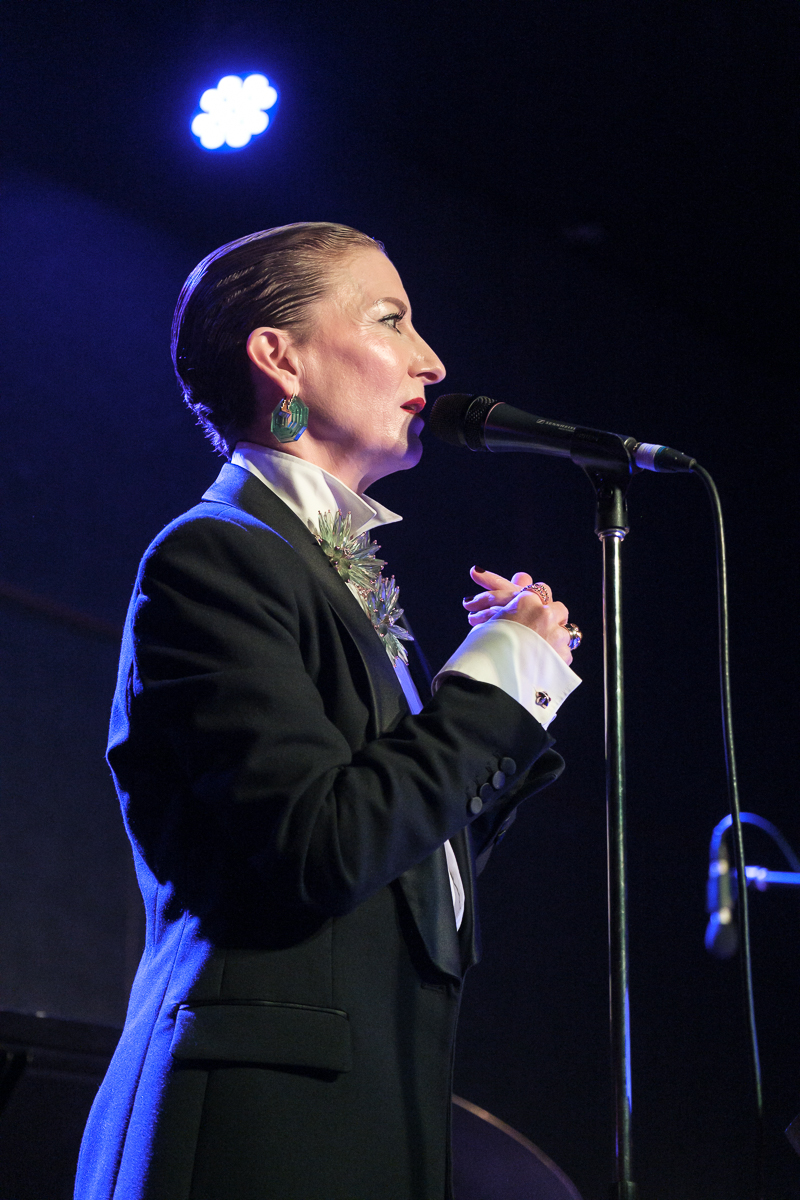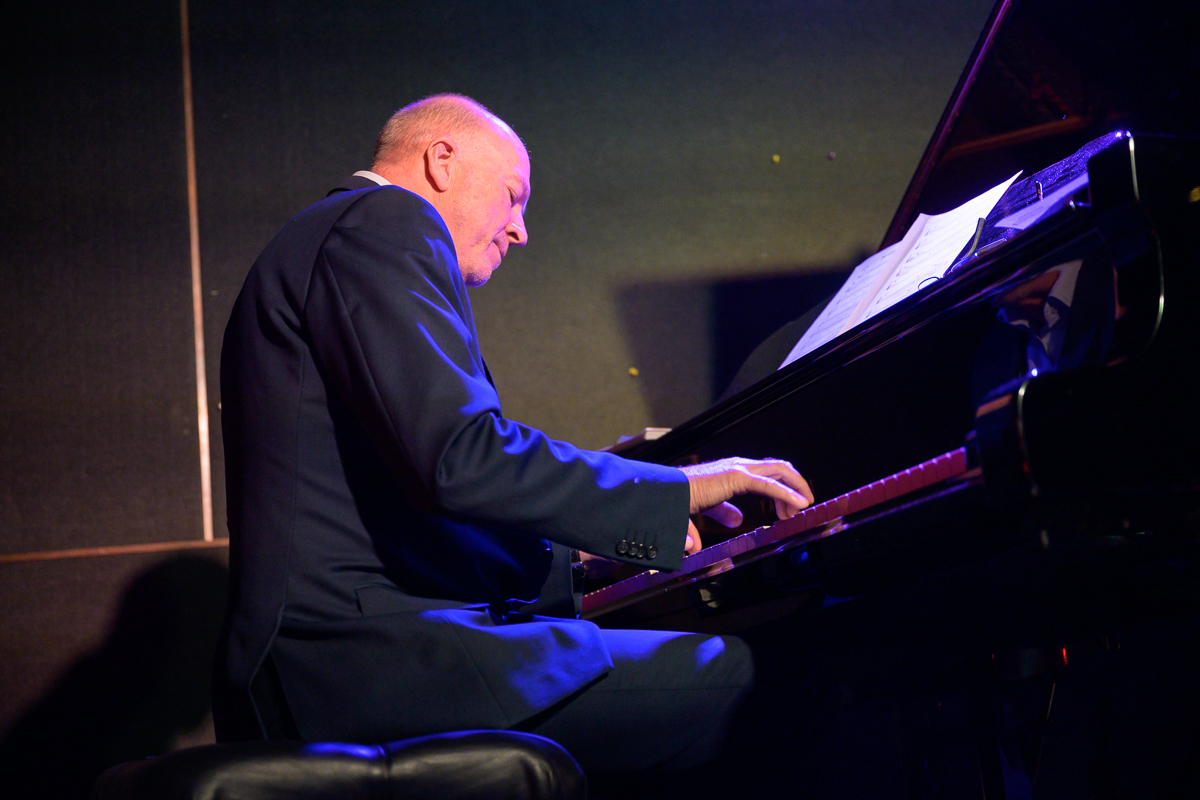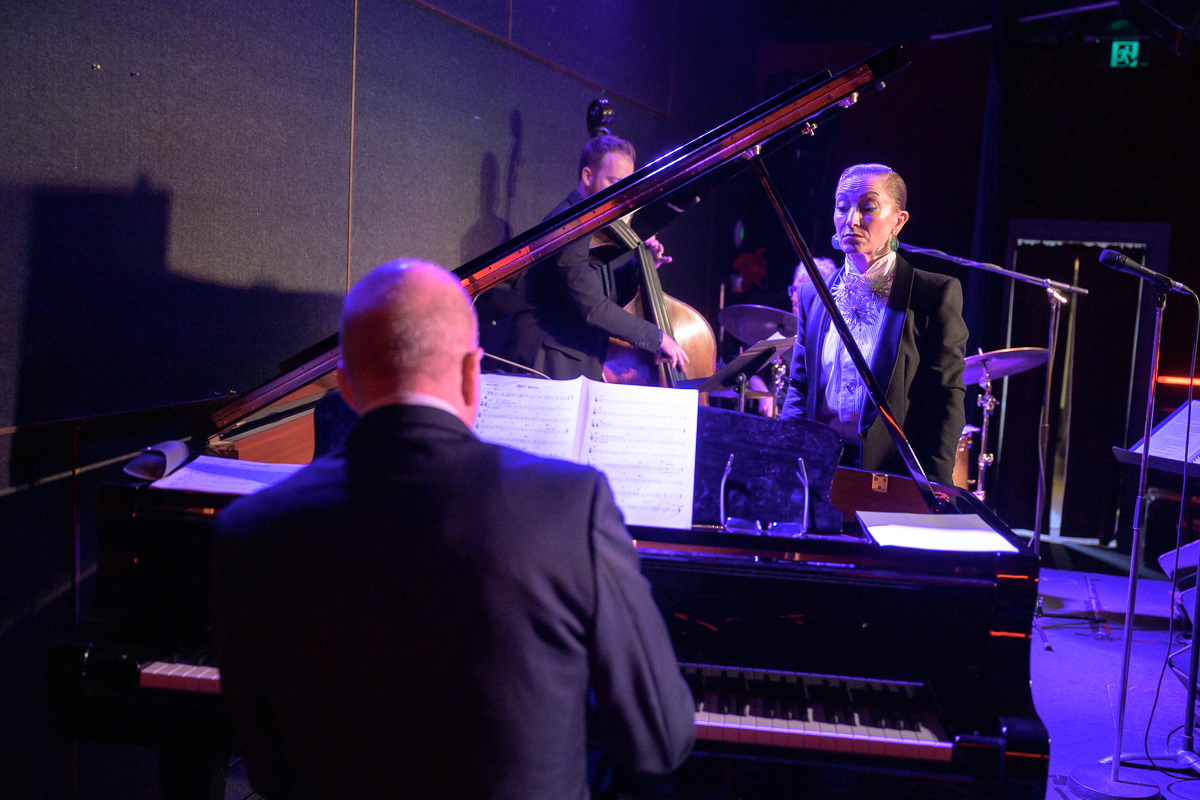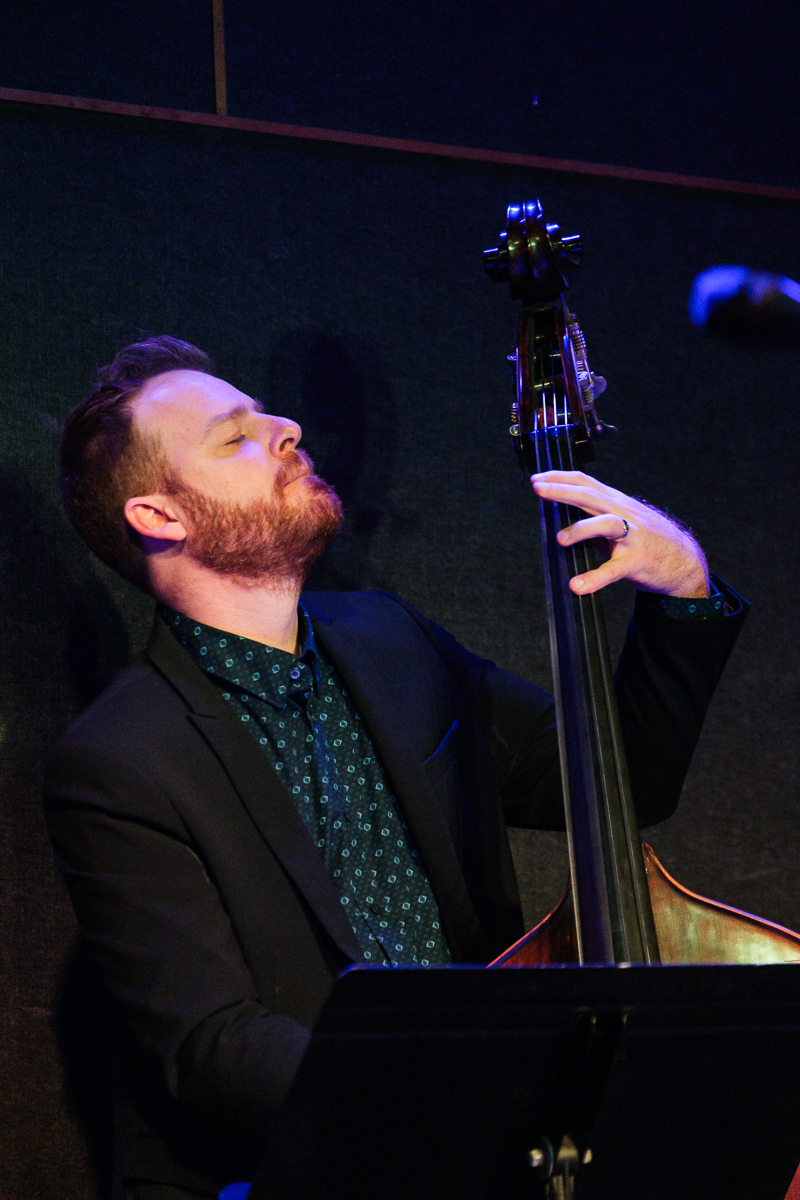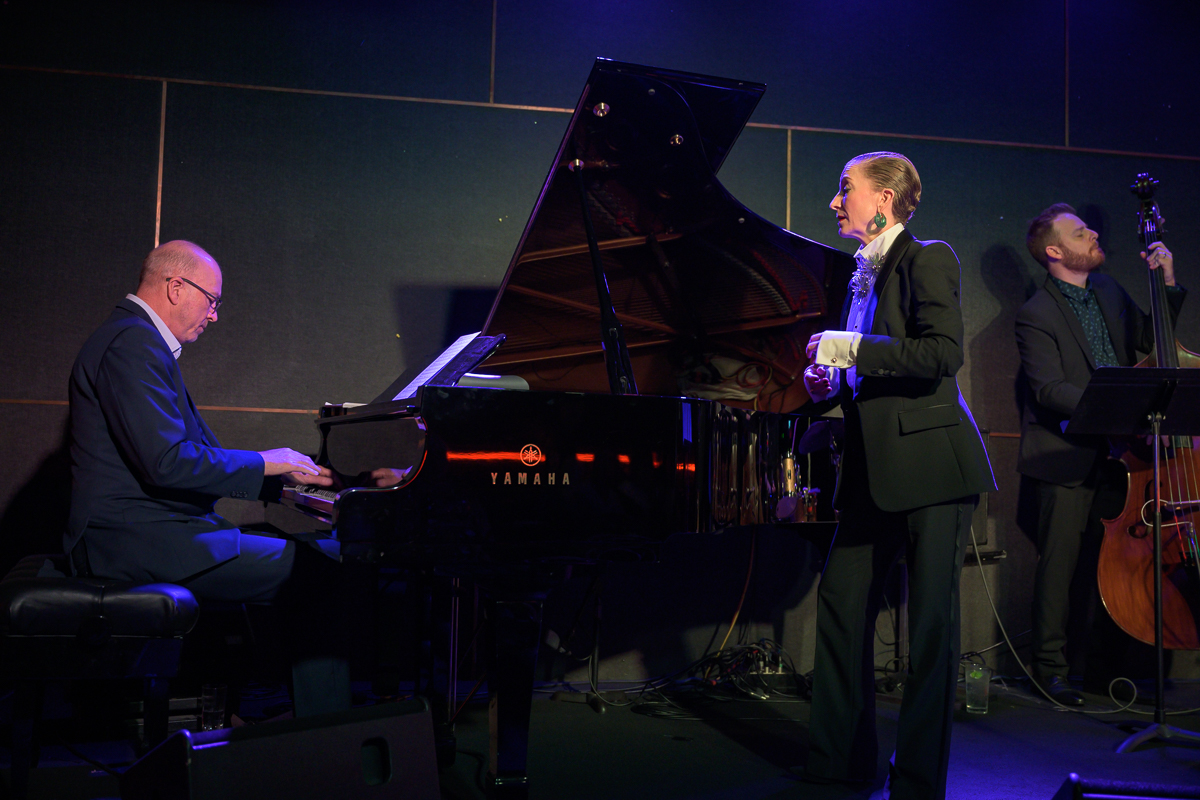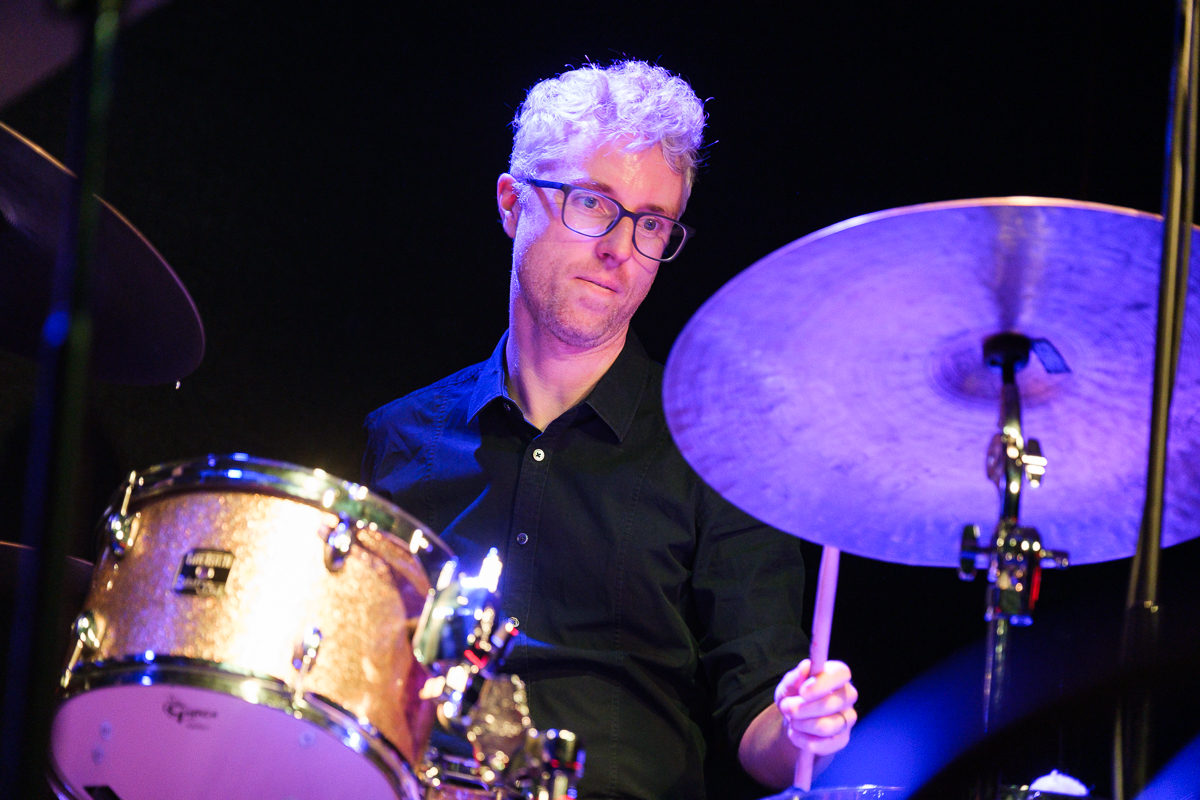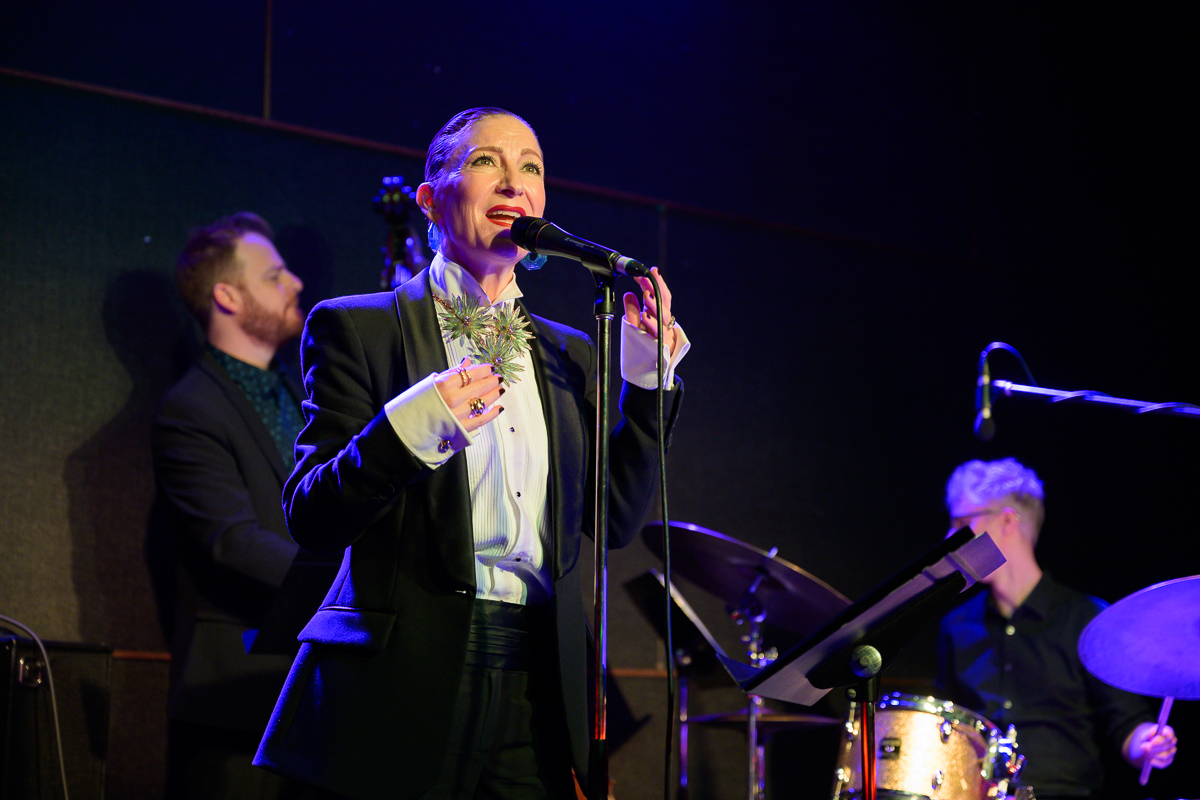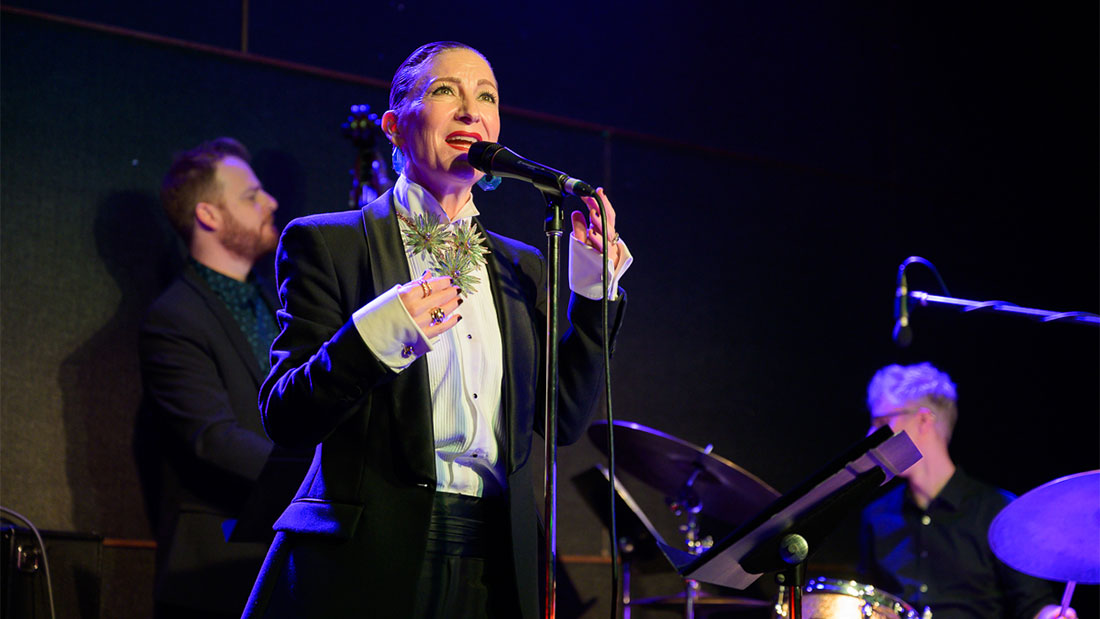
Review: Ali Bodycoat Quartet at Ellington Jazz Club
Ali Bodycoat Quartet at Ellington Jazz Club
Saturday, June 8, 2024
The ever-urbane Ali Bodycoat has been gracing Perth stages for nigh on thirty years. Probably best known for her jazz singing, she is also accomplished in musical theatre, cabaret and classical. She has appeared in musical theatre productions for Yellow Glass Theatre (Hair, Chicago, Company), comedic cabarets with fellow diva Libby Hammer (Over the Rainbow, Bringing Back Bacharach, Pink Mancini), and featured with both the Perth and West Australian symphony orchestras. In homage to her musical heroines, she has devised two shows, Minor Major Marlene (Dietrich) and From Bodycoat to Barbra (Streisand), both of which she revives every few years.
Her primary jazz outfit, the Ali Bodycoat Quartet, has been performing consistently throughout her singing career. It’s most recent manifestation—Russell Holmes (piano), Karl Florisson (double bass), and Pete Evans (drums)—presented an inspired matinee at The Ellington a few weekends back.
Bodycoat’s journey into music has been unconventional—it was her day job in hospitality that first drew her onto the stage. Even though she’s loved performing since childhood and has had some amazing teachers—Janice Taylor-Warne (classical), Helen Matthews (jazz), and more recently, a Certificate of Musical Theatre from WAAPA—it was who she knew rather than what she knew that led her into professional performance.
While managing Phil Sexton’s legendary Oriel Café in Hay Street, Bodycoat strengthened her connection with the Monaghan family, managers of the nearby Subiaco Hotel. In the mid-1990s, this contact saw the Monaghans invite her to perform in the hotel’s restaurant. The invitation led to the formation of the first Bodycoat band, a trio with Graham Wood (piano) and Carl Mackey (sax), which eventually morphed into a residency that lasted some seventeen years.
Through these performances, the many great musicians she worked with, and other key people she met along the way, Bodycoat was able to hone her formidable performance skills.
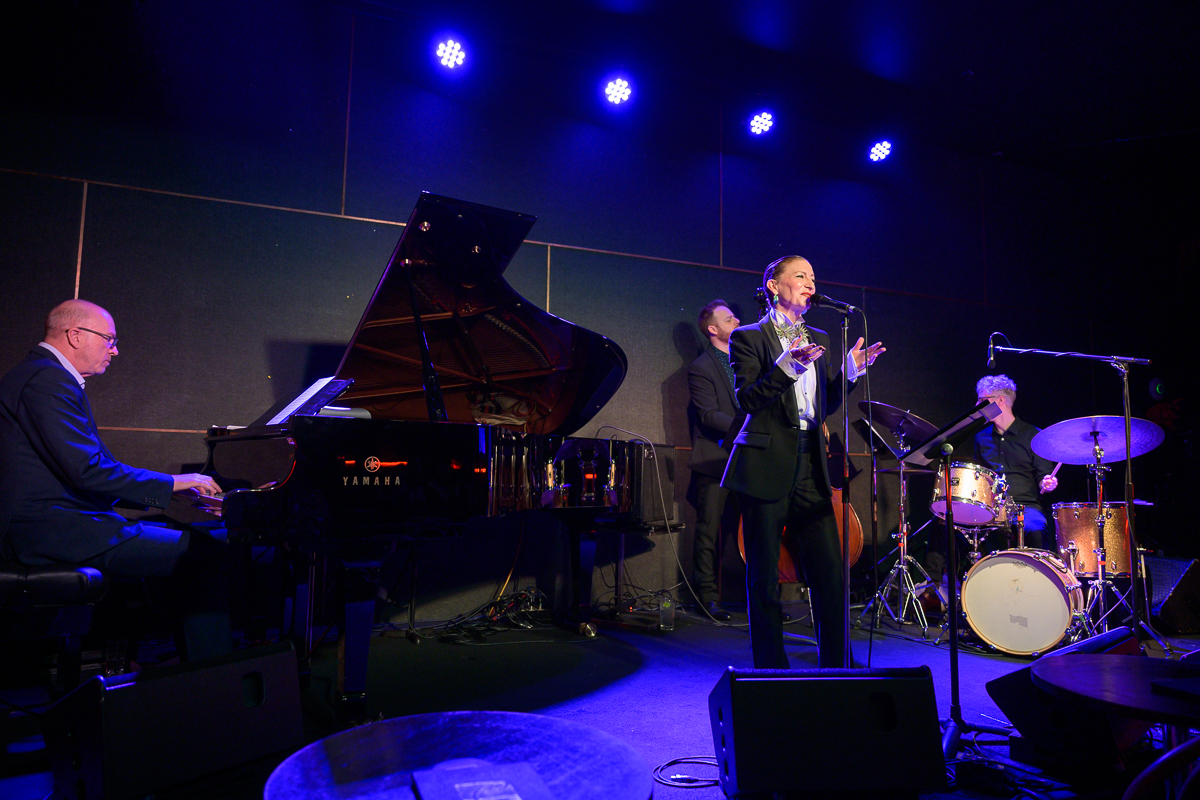
The Ali Bodycoat Quartet
She readily acknowledges her good luck here. Graham Wood, in particular, a natural teacher and inspirational jazz musician, taught her heaps. She was also fortunate that Reece Creighton of Jam’n’Music took her under his wing.
Creighton co-programmed the Greenwich, a jazz club housed in the basement of His Majesty’s Theatre. Throughout the 1990s, this was a key jazz haunt in Perth—perhaps the key haunt. Bodycoat became one of their regular performers. It was here that she met and performed with Russell Holmes and his band and consolidated her double diva act with Libby Hammer. Outstanding musicians both, Holmes became another of Bodycoat’s mentors.
Many professional artists support their creative habit by teaching or another allied artistic pursuit. In contrast, Bodycoat has run a parallel career in related industries.
From hospitality, she moved into fashion and, for some dozen years, with Paul O’Connor, managed Aurelio Costarello’s North Perth store. Through this connection, she acquired an extensive and very stylish wardrobe, which in part accounts for her always-sharp appearance—both on and off stage.
From fashion, she moved into ‘cultural facilitation’. She currently works as the arts and culture manager at Mello House and the State Buildings, a private members club and conglomerate of restaurants and bars housed in the old Treasury Building. As well as regular performances, usually to solo piano accompaniment, this job entails programming ‘conversations’ between key arts and cultural figures for public and private audiences. Blessed with an inquiring mind, Bodycoat loves raising the issues people want to learn about—for her, the conversation (journey) is as important as the answer (destination).
With such managerial and directorial experience, it’s little wonder that she makes a suave host for her many stage shows.
Which brings us back to the Ali Bodycoat Quartet.
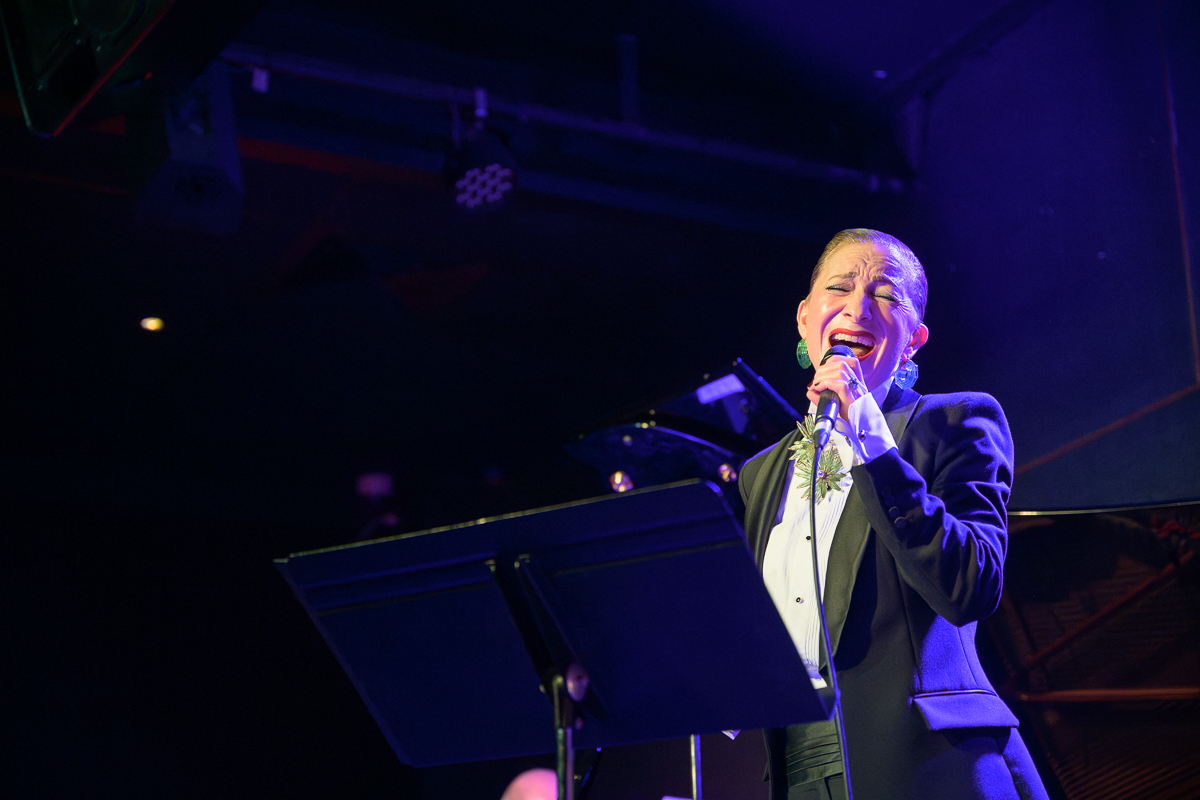
The Ali Bodycoat Quartet
After the isolation of the COVID years, Bodycoat was determined to reignite the quartet. She wanted to expand the repertoire, develop new arrangements, and explore the dynamics of working with a group of seasoned professionals.
Like most jazz ensembles, the membership of the Bodycoat Quartet is an ever-changing parade. In this case, the players come from the upper echelon of the Perth scene. Her mainstay quartet is Holmes, Florisson, and drummer Danny Susnjar, with quality players such as Pete Evans and Grant Windsor standing in the wings. Whatever form the ensemble takes, it is certain to be vibrant and ear-catching. Bodycoat never takes for granted the commitment these fine musicians make in performing with her. As much for them as the audience, she likes to constantly bring in new and challenging material. It keeps everyone on their toes.
The format of the Ellington matinee provided an opportunity to expand the quartet’s repertoire and trial some different songs. As always, Bodycoat was careful in her choices—she likes to mix things up.
A selection of often-aired jazz standards were cut with some suitably spiced-up show tunes. Hence Harold Arlen and Johnny Mercer’s That Old Black Magic, Joseph Kozma’s Autumn Leaves, Cole Porter’s Anything Goes, Duke Ellington’s In A Sentimental Mood and It Don’t Mean A Thing (If It Ain’t Got That Swing), and Gershwin’s Love is Here to Stay sat side by side with On the Street Where You Live from Lerner and Loewe’s My Fair Lady and The Way He Makes Me Feel from Barbra Streisand’s Yentl.
The spice was the inclusion of lesser-known jazz gems and a selection of recast pop songs. Nat King Cole’s An Errand Girl for Rhythm, Billy Strayhorn’s precocious Lush Life, and a sultry rendition of Henry Mancini’s Slow Hot Wind were set with The Standells' 1960s hit Dirty Water, Denise la Salle’s Someone Else is Steppin’ In, and, most startlingly, Chris Isaak’s ubiquitous 1990s hit Wicked Game.
Their take of Wicked Game, as arranged by Grant Windsor’s, was sensational. The gentle jazz inflection of the introduction set the song off sideways—it was only when Bodycoat came in on the opening line that the familiar cogs settled into place. The lush bed of music allowed Bodycoat’s vocal range to truly shine. From the rich depths of the opening verse, through the slowly rising middle eight, to the chorus’s soaring ‘I’, it was an impressive performance.
It was not, however, a flawless rendition. The ‘don’t’ in the single-line chorus, which Isaak downplays to give his desire an ironic twist, was a tad too prominent in Bodycoat’s delivery, while the sage refrain ‘this world is only gonna break your heart’ was sadly, though necessarily, absent. Even so, it was pretty damn good—skin-tingling.
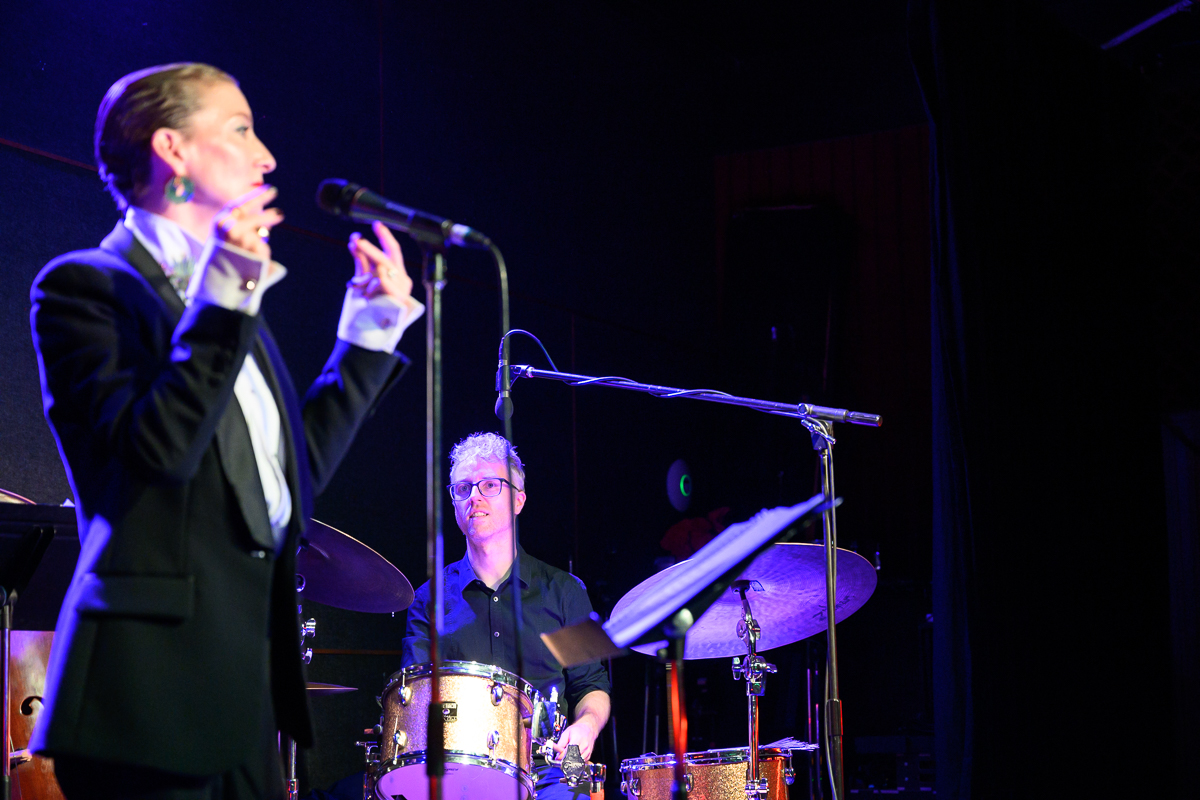
The Ali Bodycoat Quartet
As with all the songs in the set, the interplay between the musicians was superb. Like a single creature, the piano, bass and drums moved organically together. The sinuous flow of energy and emphasis from one to the other was a testament to the virtuoso ease with which Holmes, Florisson and Evans always play. It is another sign of Bodycoat’s vocal dexterity that she moved effortlessly among them. As if the extension of a single thought, a solo would morph into a vocal line.
Another highlight performance was An Errand Girl for Rhythm. As emphasised in the intro, that’s 'errand', not ‘errant’. Bodycoat then cheekily subverted this in her ‘errant’ delivery—her melody lines were perfectly placed off the beat. It took a while to get the joke, but it was a clever one.
Another distinctive feature of Bodycoat’s stage style is the way she directs the audience’s attention around her band. Many singers stand still during solos and tilt their eyes towards the highlighted player. Bodycoat goes a step further, literally. She turns sharply to face the soloist and looks wide-eyed at what they are playing. It’s dramatic and effective. Throughout the show, she frequently stood in the curve of the grand piano to watch Russell Holmes deliver yet another sublime solo. She would then turn 180 degrees to look at either Pete Evans or Carl Florisson as they picked up the line and carried it through a round-robin of solos. An adept piece of stage management—perhaps the cultural facilitator within her was coming back into play?
Over all, this polished show felt like the ideal soundtrack for a yet-to-be made movie—a sophisticated, urbane thriller with a dash of romance, a splash of vivid colour, and a twist of irony. The music had the right left-field, Hollywood quality. But then, it was slightly disorienting to see the show during daylight hours. Surely this type of music and the mood it invokes belong late at night. It was weird going from the darkened club out into daylight, as though the clock had skipped suddenly backwards, turning time on its head.
Perth is lucky that Ali Bodycoat is committed to living here. Although she is proud of her performances in Melbourne and other places, she loves this city’s lifestyle and its many entertainments. As she says, it is hard to be bored now in Perth—there is always so much to do and see. The city is also blessed to have a plethora of sensational female singers. Ali Bodycoat is up there with the best of them.
Bodycoat’s is currently gearing up for a series of performances with acclaimed, now New York-based clarinet and piano player Adrian Galante. The two of them are performing next month at The Duke of George and again at the Ellington in ensemble with Simone Craddock and Libby Hammer. Tickets are available through the venues.
IAN LILBURNE
Photos by Adrian Thomson

